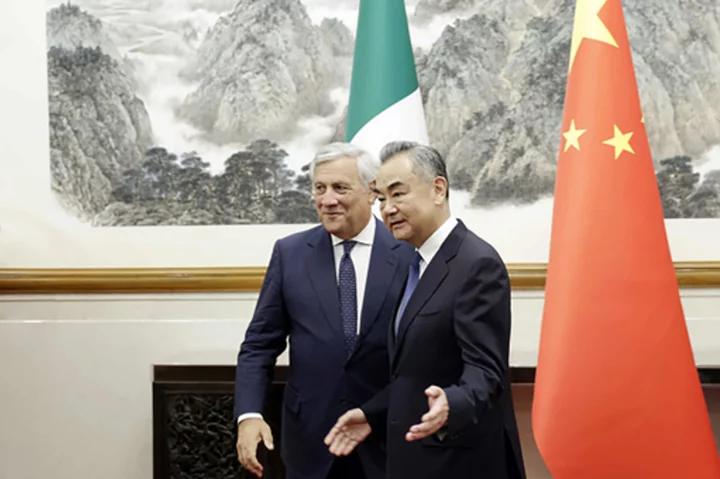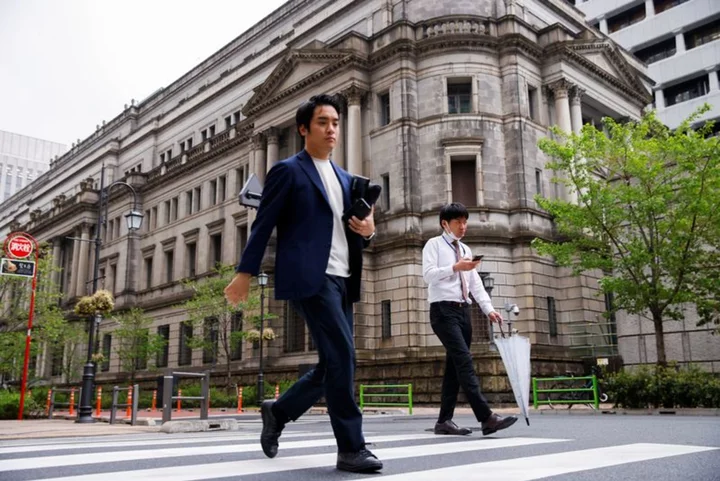BEIJING (AP) — China’s foreign minister is seeking to sell his Italian counterpart on the benefits of leader Xi Jinping’s signature “Belt and Road” initiative of Chinese-built and -funded infrastructure projects, as Rome considers whether to renew the agreement.
In a Monday meeting, Wang Yi told Antonio Tajani that bilateral trade had grown from $50 billion to nearly $80 billion and that Italy’s exports to China increased by around 30% over the past five years.
While the figures haven’t been corroborated, Italy’s conservative government has cast doubt on the benefits of the arrangement.
In 2019, Italy became the only European country to sign on to the initiative under then-premier Giuseppe Conte, and it is not expected to be extended when it comes up for renewal at year’s end.
China's official Xinhua News Agency quoted Wang as telling Tajani that “China and Italy should adhere to the right way of getting along with each other" with mutual respect and trust in the face of geopolitical disturbances and that China was ready to push for steady development of China-Italy relations.
The Italian news agency ANSA quoted Tajani as saying that, “Italy is the supporter of dialogue with Beijing at the European Union level too, and of frank, open dialogue on principles and rights.”
China touts the “Belt and Road” initiative, known as the BRI, as successfully raising infrastructure in underdeveloped nations. Critics say BRI built vanity projects in countries that needed poverty eradication and basic services, while the local governments were left with huge debts owed to Chinese state banks under contracts shrouded in secrecy.









